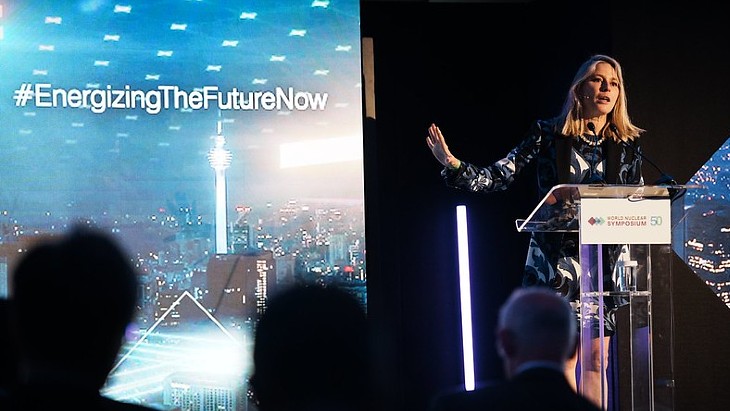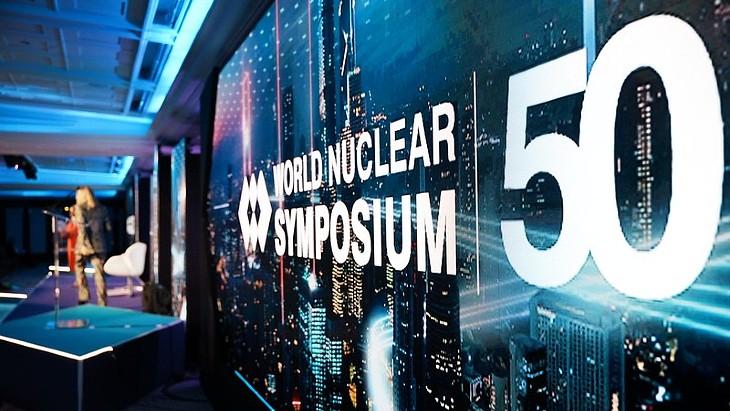"To my considerable frustration, the finalisation of this report has been delayed by almost two years as the result of an unsuccessful legal challenge to the work of the inquiry by certain former NDA executives," Holliday wrote in the report.
"During that time, I understand that the NDA has continued to make progress as an organisation on the basis of my Interim Report [published on 5 October 2017]. I have not updated or altered any of my earlier-drafted final recommendations to reflect the progress made by the NDA during this time. In addition, since the inception of this inquiry, the government has issued further relevant guidance applicable to complex procurements. I believe my recommendations are consistent with, and should be read alongside, this guidance."
Stressing that the inquiry was independent and non-statutory, Holliday said it therefore had no powers to compel either the production of documents or information, or the attendance of witnesses at evidence gathering or potential criticism interviews. The co-operation of all relevant bodies and individuals throughout the inquiry process has therefore been voluntary, he added.
Competition
The Magnox Competition was run by the NDA to find a parent body organisation to take ownership of the site licence companies relating to 12 NDA sites. The contract had an estimated value of GBP6.2 billion (USD8.6 billion). The competition started in April 2012 and in March 2014 the first placed bidder was announced as Cavendish Fluor Partnership (CFP). CFP started work on 1 September 2014 under a 14-year contract. Subsequently, it become clear to the NDA that there was a significant mismatch between the work that was specified in the Magnox Contract as tendered in 2012 and as awarded in 2014, and the work that actually needed to be done.
As a result, in March 2017 the NDA Board concluded that it should exercise its right to terminate the contract with effect from September 2019. Meanwhile, in April 2014, one of the disappointed bidders, Energy Solutions (ES), commenced proceedings against the NDA seeking damages. In July 2016 the High Court found that the NDA had wrongly decided the outcome of the procurement process. In August 2016 a related bidder, Bechtel Management Company Limited (Bechtel), issued a claim. In March 2017 the NDA came to a settlement with ES and Bechtel. The total settlement amount was GBP85 million for ES and about GBP12.5 million for Bechtel.
The inquiry investigated the procurement process from its inception through to contract award, the management of the contract by NDA to the point at which the NDA decided to terminate the contract, and the litigation that followed the contract award.
Contributing events
"It would be overly simplistic to describe Magnox as merely a failed procurement exercise, without acknowledging that the totality of the contributing events was caused by multiple failings," Holliday wrote. "In many respects, Magnox was a well-run procurement and appeared to have the critical components for successful delivery. These included a tried and trusted procurement model (competitive dialogue) that was understood by the market; a multi-level governance structure with appropriate stakeholder representation; market engagement; appropriate policies, risk identification and regular reporting; a seemingly well-resourced team; the engagement of external advisers and independent internal and external assurance.
"This may well explain why the NDA, its wider stakeholders and those responsible for assurance had great confidence in, and took considerable comfort from, such a seemingly impressive process. In reality, however, there were errors and shortcomings in procurement design and execution, compounded by post competition conduct and deficiencies in corporate governance, which were not sufficiently identified by the assurance processes in place and that resulted in the events that my Inquiry has been extensively investigating."
Principal findings
The report has nine findings: NDA’s procurement strategy; tender design; bid evaluation; management of the legal challenge and ensuing litigation; management of consolidation; NDA governance and accountability for Magnox; oversight by Shareholder Executive/UK Government Investments (UKGI); assurance and the Major Projects Authority ; and NDA culture.
On the first point, the report says the extent of the variance between the baseline and the actual state of the sites was "so substantial" that it eventually gave rise to a risk of material variation (a potential breach of procurement law) which exposed the NDA to potential legal liability and played a major part in the decision to terminate the Magnox Contract with the winning bidder, CFP.
On the ninth finding, the report says that, throughout the Magnox Competition, litigation and consolidation the NDA had an approach "indicative of a reluctance to entertain bad news, and the apparent placing of insufficient weight on legal risk".
Holliday suggested that this approach was "exacerbated" by the lack of an NDA General Counsel (or equivalent) present before the NDA Board.
"There appears to have been a culture that sought to self-justify, and which was inward looking. In particular: the NDA had a belief in its own skills and intellectual ability, and did not recognise or seriously contemplate that it may have any weaknesses, when contracting and managing external advisers, it had a propensity to limit their role, and did not appear to welcome strong challenge; and it failed to take sufficient steps to bring in people from other industries with different skills and experience, and to learn lessons from them."
Recommendations
The report makes seven recommendations. The first of these is to review the strategic nature of the NDA.
"Although I am generally aware of related work undertaken by the NDA internally as regards its strategy and functions, I remain of the view that BEIS should promptly consider the scope of work that the NDA is accountable to deliver in light of the size and resources of the organisation, in comparison with industrial companies that are directly managing such complex and expensive programmes," Holliday wrote.
The second recommendation is for the NDA "to undertake and implement a root and branch review of its organisational structure, staffing levels, and competency, and develop and implement a plan to ensure it has in place a structure with suitably qualified and experienced resources at all levels to deliver its business plan". The review should include "a critical evaluation of the skills and capabilities of relevant existing staff matched against the NDA's current and future skill set requirements".
On future procurements, the report says the NDA should devise "a transparent, but simplified set of competition rules, which focus on the substance of what it is looking for, rather than on process". The NDA should "carefully consider" its approach to 'thresholds', when these should be adopted and how they should be evaluated. Particular consideration should be given to the potential consequences (inclusive of the avoidance of unintended consequences) for a bidder not meeting a proposed threshold.
There has to be a change in culture in the NDA, the report says, to ensure "full and open dialogue" and a move away from "optimism bias".
The governance and management structure of the NDA ought to be "streamlined and simplified", it says.
"I recommend that BEIS should take a more active, direct role in overseeing the NDA, and that UKGI (acting on behalf of BEIS) should be removed from the day to day oversight of the NDA," Holliday wrote. "UKGI should be called upon by BEIS to provide independent advice on its areas of expertise, in particular to review and advise periodically on governance arrangements. Any recommendations UKGI make must have teeth, and either be followed through, or formally rejected with written reasons by the NDA."
The other recommendations concern oversight by the NDA Board of the business of NDA, and "future assurance" by the NDA.





_77790.png)
_59102.jpg)
_99967.jpg)
_49833.jpg)




